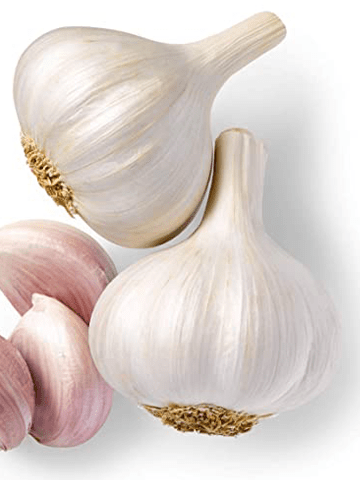
High blood pressure is a major contributing factor towards both heart disease and stroke. Anyone from the age of 20 onwards can be affected and one in three adults in the US have high blood pressure.* Patients and researchers alike are always seeking new remedies for high blood pressure.
The good news would appear to be that the benefits of garlic in the daily diet will reduce most people’s blood pressure points. Those with the highest blood pressure will benefit the most. The average person can drop about 5 points off their top figure (systolic) and 2-3 points off the bottom one (diastolic).
The University Of Adelaide Study.
Sufferers from high blood pressure were given garlic powder for a period of time varying between 12 and 23 weeks. Those with the highest blood pressure seemed to benefit the most with a drop in their systolic readings (top figure) by up to 8.4 mm Hg, and a reduction in the diastolic (bottom number) by 7.3 mm Hg.
People with average blood pressures still averaged a drop of 4.6 mm Hg off their top figure, and 2 to 3 points off the bottom figure. The study concluded that an average reduction in blood pressures by these amounts would be enough to reduce heart disease by about 20%.
Researchers also concluded that the daily garlic was as helpful in reducing high blood pressure as the more commonly used medications. Compare the figures of 8.4 and 7.3 as mentioned above, to beta blocker tablets which average a drop in the systolic reading of 5 points, and ACE inhibitors which average a drop of 8 points off the systolic reading.
Researchers did acknowledge however, that there does need to be more long term studies performed to determine how effective garlic will be on the resulting heart disease and strokes caused by high blood pressure.
How Much Garlic?
The patients were given between 600 and 900 mg powdered garlic daily. This is the equivalent of 3.6 to 5.4 mg of the active ingredient in garlic, known as allicin. The average small clove of garlic will provide you with 5 to 9 mg of allicin garlic. How much garlic do you need to eat? Half to one whole small fresh clove of garlic daily will do the trick.
This recent study only further highlights the benefits of the Mediterranean Diet. It had always been acknowledged that those who follow the traditional Mediterranean Diet, which is high in garlic, have much lower rates of heart disease and stroke.
It would appear that the simple, healthy, and natural addition of a small clove of garlic to the daily diet can reduce high blood pressure. For the 2 people out of 3 who do not have their high blood pressure under good control, garlic combined with the usual medications could be a safe and easy way to help shave an extra few points off.
Conclusion.
Eating the equivalent of half to one full small clove of garlic daily would appear to benefit in lowering most people’s blood pressure. Those who suffer from higher blood pressure appear to receive the most benefits. Treating high blood pressure should always be performed by a medical practitioner. However, adding garlic to the daily diet seems to be a healthy option to assist in alleviating high blood pressure and to help keep more people in the normal range. Garlic breath or stroke? The choice may be yours.
A word of warning.
Are you the one in three who doesn’t even know they have high blood pressure? How long since you had it checked? No, you are not too young to have high blood pressure. This disease can strike from the age of 20 on.
It is not recommended for anyone suffering from high blood pressure to abandon or alter their prescribed medications without consulting their medical practitioner first.
* All statistics quoted sourced from the American Heart Organization and correct at time of printing.


